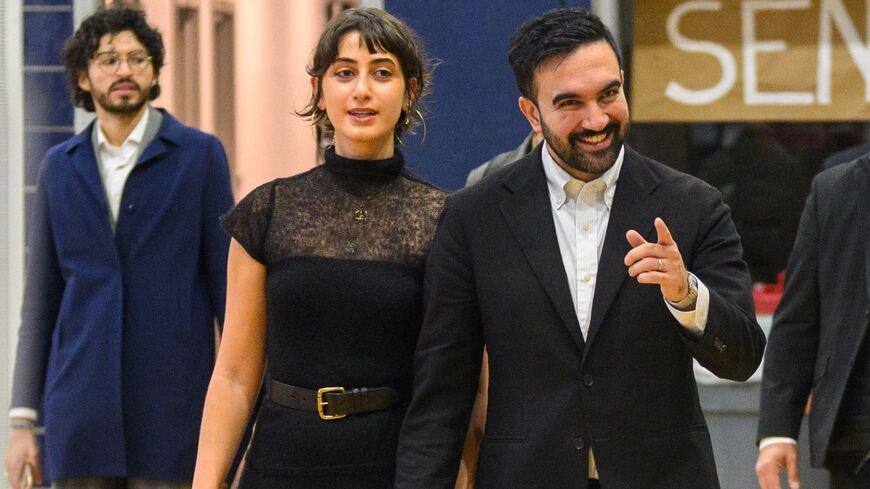
Faith, Politics, And Progress: The Story Of New York's First Muslim Mayor
In a historic political upset in the United States, Zuhraan Mamdani has been elected as New York's first Muslim mayor, despite fierce opposition from former President Donald Trump. His victory not only signals a change in leadership but also reflects the deep transformation of the city's political conscience.
The 34-year-old state assemblyman began the year as a relatively unknown figure. Yet within months, his message of equality and social justice captured the imagination of voters across boroughs, representing the rise of a new progressive era in America's largest city.
From Kampala to the Bronx
According to the BBC, Zuhraan Kwame Mamdani was born in Kampala, Uganda, in 1991. His father, Mahmood Mamdani, is a celebrated political theorist and professor, and his mother, Mira Nair, is an acclaimed filmmaker known for her work across Bollywood and Hollywood.
The family later lived in Cape Town, South Africa, before moving to New York when Zuhraan was seven. Growing up in the Bronx, he experienced firsthand the struggles of working-class immigrants and developed an early sense of political and social awareness. His activism, particularly in support of Palestinian rights, became a defining feature of his youth.
The Journey and the Roots of Change
In 2024, Mamdani married Syrian-American artist Rama Dwaji. Before entering politics, he worked as a foreclosure prevention counselor, helping families on the brink of eviction. That work instilled in him a deep understanding of economic injustice and shaped his people-centered philosophy, a foundation for his later political rise.
A Rapper Turned Reformer
Before politics, Mamdani also had a creative side. As rapper“Mr. Cardamom,” he produced songs that fused humor with activism, addressing social inequality and cultural identity.
Also Read: Bannu: Five Kidnapped PESCO Employees Safely Return Home After Two MonthsHis 2019 song“Nani,” featuring Madhur Jaffrey as a fierce grandmother, gained international attention. Pakistani singer Ali Sethi later collaborated with him, supporting his campaign and calling him a“storyteller in service of justice.”
The First Victory
Mamdani's first political breakthrough came in 2020 when he defeated a ten-year incumbent to win a seat in the New York State Assembly. He became the first South Asian man, first Ugandan-born, and only the third Muslim ever elected to that legislature.
His success as an assemblyman paved the way for his mayoral bid, driven by his commitment to affordable housing, fair transit, and food security in one of the world's costliest cities.
A Socialist Vision for the City
Running as a democratic socialist, Mamdani's campaign promised equitable access to resources and dignity for all New Yorkers. While critics questioned the financial practicality of his plans, his focus on social justice resonated deeply with working-class and immigrant communities.
His faith, too, became a visible and unapologetic part of his campaign. He often visited mosques and even released a video message in Urdu addressing the city's budget challenges.“As Muslims,” he said,“we know that standing up for others sometimes means giving up the comfort of silence.”
Humor, Humanity, and a Touch of Mango Lassi
Mamdani's campaign style combined sharp intellect with wit. One viral video used glasses of mango lassi to explain ranked-choice voting. In a televised debate, when former Governor Andrew Cuomo repeatedly mispronounced his name, Mamdani corrected him calmly, then quipped,“I've never had to resign in disgrace or sue women over their maternity records, because I'm not you, Mr. Cuomo.”
A Movement, Not Just a Campaign
In neighborhoods like Jackson Heights and Queens, his campaign became a grassroots movement. Volunteers spoke in Urdu, Hindi, Bengali, and Spanish, reaching over one million homes in what was described as New York's largest field operation.
His message appealed to a generation disillusioned with party politics, one that seeks authenticity over rhetoric.
Faith, Equality, and the Future
Mamdani faced criticism for his outspoken support for Palestinians and for refusing to define Israel as a“Jewish state.” He rejected all forms of antisemitism while reiterating his belief in universal equality. His ability to articulate complex issues without fear has made him both admired and controversial.
The Road Ahead
The challenge now lies in translating his progressive ideals into governance. With Trump's open hostility and threats to cut federal funding, Mamdani's leadership will be tested from the very start. But his calm defiance,“I'm like a Scandinavian politician, just a bit more brown”, sums up his mix of humor, confidence, and conviction.
For New York, Zuhraan Mamdani's victory is more than political history. It represents a cultural reawakening; a moment when faith, politics, and progress have converged to redefine what leadership means in America's most diverse city.

Legal Disclaimer:
MENAFN provides the
information “as is” without warranty of any kind. We do not accept
any responsibility or liability for the accuracy, content, images,
videos, licenses, completeness, legality, or reliability of the information
contained in this article. If you have any complaints or copyright
issues related to this article, kindly contact the provider above.


















Comments
No comment